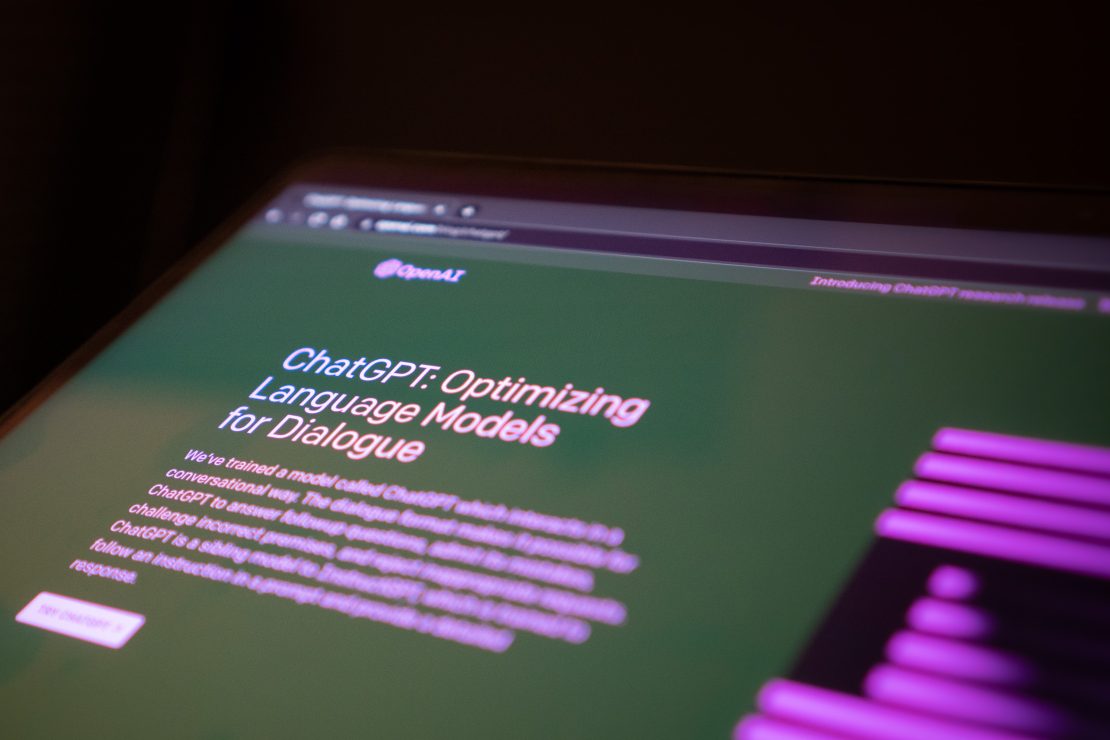Why everyone in academic settings should be wary of AI

Photo of AI, ChatGPT’s website, photo by Jonathan Kemper.
The creation of AI tools such as ChatGPT has been controversial in many regards. While it is a powerful tool, many are worried about the ways it can be used and what it will mean for students and academia.
One solution that professors have thought of is doing away with take-home assignments, and replacing them with exams. While I think this philosophy is somewhat flawed, I do understand the need to prevent students from abusing such a tool to get through their degrees.
The main issue with ChatGPT is its ability to do complex things in a moment. You can ask it exam questions, get it to write a computer program, or even complete an essay. These tools are problematic at best, as they can effectively finish assignments without students needing to know much more than the prompt or the basis of the assignment.
However, using ChatGPT is not always a walk in the park. After using it myself, it’s easy to recognize that it has serious limitations. When I asked it to write an essay, it did not cite sources well, but if an assignment doesn’t require sources, this is not much of an issue. It should be noted, however, that it can generate responses better than the average human test taker, which is an issue for professors who regularly assign take-home or online exams.
Moreover, ChatGPT is not afraid to be wrong. There are multiple posts on social media that show that ChatGPT will put out false information and present its answers as true. Dr. Jeremy Faust, medical editor-in-chief of MedPage Today, used it to diagnose a hypothetical patient, and ChatGPT diagnosed the patient in a seemingly correct way. But when asked to present evidence for the diagnosis, it fabricated evidence by referencing a nonexistent article in a real journal and citing real authors who had written for the journal.
This leads us to the issue of plagiarism. Currently, UVic does not have a specific policy on the use of AI. In order to address this, the Policy on Academic Integrity would need to be updated to clarify whether ChatGPT is considered an individual or a creator, and whether the work of AI can be cited or if it is inadmissible as a whole.
In any case, this is another worry for profs, as students may not even know they are committing plagiarism if sources aren’t cited properly by the AI software. There are some experimental plagiarism detectors out there that are able to pick up AI generated work as plagiarism, but these can be fooled if students ask ChatGPT to write out answers in a specific way.
I think it is appropriate that profs are taking measures to limit the possibility of AI software like ChatGPT from infiltrating the work they have to grade. Not only does it protect themselves from giving grades that students don’t deserve, but it also protects students from committing acts of academic fraud that they may not be aware of.
It’s also important that students not cut corners in learning what they are actually going to practice. If a student is able to cheat the system by getting AI to do a substantial amount of their work, how can we expect such a person to become an expert in their field?
While I believe some metric of testing is required, the standard closed-book exam is not the best solution. It can work in some scenarios, but in others it doesn’t. The goal of university is to prepare students for their careers, and that means ensuring they have a good understanding of the material they will be incorporating into their future work. However, in many jobs, you do have the ability to use references and books as aids to complete work.
Thus, I believe that several things need to happen to address the use of AI. The university should add to (or clarify) their policy on academic integrity to help professors deter the use of AI for assignments. This will allow profs more freedom to assign take-home work. Furthermore, profs should look into more in-class assignments and tests as a way to prevent the use of ChatGPT. Finally, students should be made aware of how ChatGPT operates — and the limits of AI in general — when trying to use it to pass classes.






